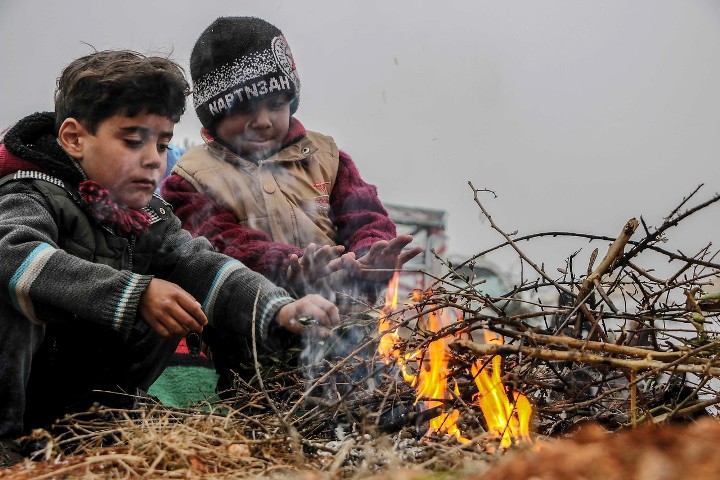IFAD donates US$544,795 grant to support COVID-hit Syrian rural community
“The triple burdens of conflict, climate and the COVID-19 pandemic impacts have had a profound negative impact on the agricultural sector as a whole and on smallholders in particular,” said Omar Ebrima Njie, IFAD’s Country Director in Syria.

- Country:
- Syrian Arab Republic
The International Fund for Agricultural Development (IFAD) has contributed a US$544,795 grant to alleviate the pressure of the COVID pandemic on the Syrian rural community. Under this grant, the Livelihoods Resilience Building Project (LRBP) will complement the farming activities and meet the needs of the most vulnerable and fragile rural communities--including small-scale livestock herders and farmers who need help to safeguard their livelihoods in the face of the COVID-19 crisis.
The project will benefit around 4,000 people in the governorates of Homs, Tartous and Lattakia. It will provide seeds, essential agricultural inputs, and farm tools, as well as livestock and animal feed, in an effort to build their resilience and food security, especially after ten years of vulnerability as a result of conflict and depletion of financial resources.
“The triple burdens of conflict, climate and the COVID-19 pandemic impacts have had a profound negative impact on the agricultural sector as a whole and on smallholders in particular,” said Omar Ebrima Njie, IFAD’s Country Director in Syria. “The Livelihoods Resilience Building Project is one step through which IFAD and partners can play their part to help mitigate the economic and social effects of COVID-19 on the rural poor in Syria, thus addressing food insecurity and contributing to more resilient rural livelihoods.”
The grant is part of IFAD’s Rural Poor Stimulus Facility (RPSF), set up to help mitigate the pandemic’s effects on production, market access and rural employment of the most vulnerable by ensuring productive capacity through timely access to inputs, information, markets and liquidity. The LRBP project in Syria will be funded by IFAD and implemented by the United Nations Development Programme (UNDP), emphasizing the strong partnership and complementarily between the two agencies both locally and globally.
“The agriculture sector has been hit hard by years of conflict and economic crisis, compounded by COVID-19, with small livestock herders and small-scale farmers the most affected,” explained Ramla Khalidi, Resident Representative of UNDP Syria. “The project will help mitigate the economic and social effects of the pandemic on poor rural people while contributing to more resilient rural livelihoods”.
Since 1982, IFAD has supported rural poverty alleviation in Syria through eight projects with a total value of US$547 million, of which IFAD financed US$ 154 million. These interventions led to innovations in rural community building and replicable solutions that have contributed to strengthening the resilience of small-scale farmers and other rural people.
- READ MORE ON:
- IFAD
- Syria
- agriculture










